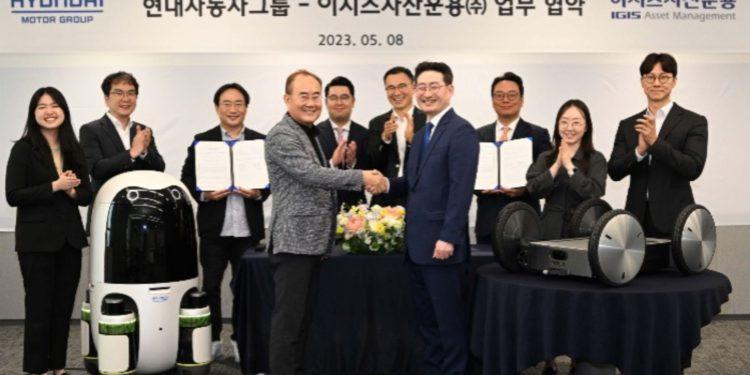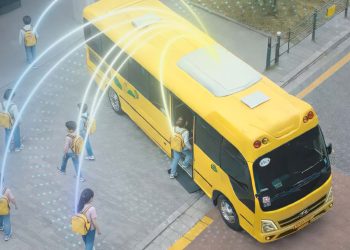Hyundai Motor Group has partnered with IGIS Asset Management to develop modern and intelligent workplaces that provide diverse conveniences, leveraging the power of robotics technology. The agreement will enable the development of buildings that are conducive to robots.
This move comes as a part of Hyundai’s broader efforts to expand its presence in the robotics industry and leverage its expertise in the automotive sector to develop new robotics applications. This partnership seeks to develop robot-friendly offices in primary technology centers, which are crucial for smart office infrastructure solutions.
The use of robots in the office environment can help increase efficiency and productivity, as well as improve the overall experience for employees and visitors. Additionally, by focusing on technology centers as the primary location for these robot-friendly buildings, the partnership is targeting a market that is already accustomed to cutting-edge technology and is likely to embrace new innovations.
The Robotics Total Solution from Hyundai Motor Group includes a range of technologies such as unmanned parking and delivery, and will be utilized in the construction of new buildings located in important business hubs throughout the nation. These hubs include the bio cluster in southwestern Seoul and the Seongsu creative cluster.
Through the partnership with IGIS Asset Management, the automotive group aims to develop robot services that are optimized for these smart offices, with a focus on achieving optimum performance in the work environment. By incorporating robot technologies into the design of these buildings, Hyundai hopes to create a new standard for efficient and sustainable workspaces that will enhance productivity and reduce costs for businesses.
Hyundai Motor Group has entrusted Hyundai Motor Co. and Kia Corp.’s Robotics Lab to provide software and hardware solutions, technology review, and building design support. Hyundai Glovis Co. will manage the operation of unmanned delivery systems and last-mile delivery services that use robots.
Hyundai’s interest in robotics is not new. In recent years, the company has made several investments in robotics technology and has developed a range of robots, including a wearable exoskeleton designed to support factory workers and a service robot called DAL-e that can provide customer assistance.
Hyundai’s focus on robotics technology is part of a broader trend in the automotive industry. With the rise of autonomous vehicles and the increasing use of robotics in manufacturing, automakers are looking for ways to expand their capabilities in these areas. By investing in robotics technology and developing new solutions, Hyundai hopes to position itself as a leader in this field and to contribute to the development of a more robot-friendly world.







